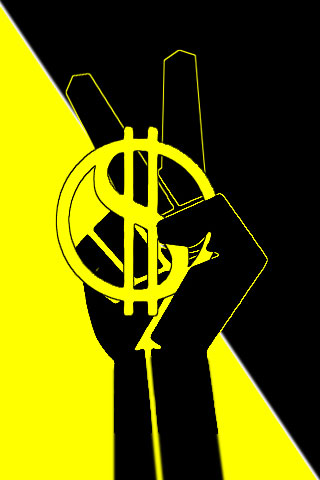Should you see on television this morning our beloved Queen opening Parliament, ponder for a moment all the much more constructive and enjoyable things that a dear old lady in her 84th year could be doing instead. There is no purpose to her speech. Indeed, there is no point in the continuation of the present Parliament, which I think we can agree is the most despised since Cromwell threw out the Rump in 1653. Almost all those assembled at Westminster today will know that. Few, though, have any reason to admit it. The likelihood of much serious legislation reaching the statute book by the time Parliament goes away for its Easter holidays, and an election campaign, in late March is minimal. It is the tradition of a Queen's Speech at this stage in the proceedings to be an outline of the manifesto and the programme for the next term. Hopes of Labour being back in power after next May must, however, be slim, so even that value is lost. Yet the two main parties have their own reasons not to have the contest just yet, despite the fraud on the public that this coming few months will represent.
Nick Clegg, the ex-lothario who now leads the Liberal Democrats, has gone so far as to say that Her Majesty's speech should be scrapped and, pending a general election, Parliament should proceed to reform itself. I am against this for the very good reason that if someone burgles your house they will not be your first choice to advise you on security measures, and you would not expect the courts to ask them to pass sentence on themselves. This Parliament cannot possibly reform itself. Too many of its members are not going to be there, for one reason or another, in a few months. Such is the bitterness of many of them over having had their collars felt in the expenses scandal that they can hardly be relied upon to come up with a set of arrangements that suits the country better than it would suit them. If Parliament is to be reformed, the size and import of the task are such that it should not happen until after an election. The people need the opportunity to decide who exactly is going to do the reforming: this lot cannot be trusted.
If you feel that is an exaggeration, look what they did when last entrusted with what was potentially a great reforming measure – the chance to elect a new Speaker to replace the compromised and incapable man we must learn to call Lord Martin. They ended up choosing the legislature's equivalent of Donald Duck, not because they believed he might step out of his cartoon one day and restore order to a profoundly damaged but vital institution, but because it would upset the Tory party. That is how serious the present parliamentary majority is about restoring the credibility of the Commons. And as we read endless stories about the new Speaker's lavish refurbishments of his apartments, the size of his television, his wife's political stunts and his decision not to dress properly for the State Opening, the full force of what a pointless little creep he is, and how he squats vacuously in one of the great positions of state, is brought home to us.
It is also optimistic of Mr Clegg to think that, in the four or five months that remain before an election is called, anything that might constitute the carefully considered reform of Parliament could be more than merely embarked upon. I dwell on this subject not because I believe Mr Clegg to be a serious political figure, but because the next accident that happens in our political process could be that he ends up having some measure of power under a minority government. Mr Brown knows this is likely, and that is why (as I wrote at the time) he promised an otherwise off-the-wall referendum on the alternative vote system of proportional representation. The Conservatives, faced with this possibility, are playing an interesting game. Their public pronouncements are to the effect that it is an uphill struggle, they are not complacent, the battle is not yet won. Yet I keep meeting Tory MPs who say that they are going to get a majority of 50 or 60 (though one did have the good manners the other day to tell me that, following the debacle of Mr Cameron's European policy, it may be 20 fewer thanks to votes that will go to Ukip in various marginal seats). The party's public pronouncements are (and this is a rarity) likely to be far more accurate than its private ones. The party is not agitating for an immediate election precisely because it is genuinely unsure that it can win it outright.
Much damage can be done in the next few months; not so much in Parliament (though that is possible, especially if there are any frivolous attempts to make little constitutional reforms that may end up having big consequences) as in the business of government, which we can expect to continue with its present level of incompetence and distraction. Too many Labour ministers are concentrating on their likely personal defeats, or on the defeat of their party, their need to survive in opposition and what camp to jump into in the leadership campaign that is likely to follow the election.
It is surprising, given those conditions, that the opposition is not livelier and noisier. It is handicapped, however, by an absence of firm policy to be lively and noisy about. Even this late in the day, it remains much easier for the Tories to be negative about what Labour does or proposes than to be positive about their own programme. The party is still resistant to hard political principles but flexible in the face of polling and focus group findings. It is hard for shadow spokesmen to try to develop policy when one of the teenagers in Central Office could get on the phone at any time and ask them to move sharply in the opposite direction.
Mr Brown probably has given his party the best chance of a non-apocalyptic result by holding on for as long as he can. The public has now so lost interest in politics (look at the 33 per cent turn-out in last week's by-election if you seek proof) that having a few more months of this Parliament may distress commentators and the highly politically motivated, but it probably won't matter at all to the electorate.
If I were an MP in any of the parties who was likely to be around after early May, I would start thinking now very hard about two things in particular: how do we revive Britain, and how do we start to rebuild the credibility of Parliament itself? There is no other plausible use for the next few months. Maybe there should be some debates on the adjournment on these two subjects between now and March, not with a view to passing laws (if, indeed, any laws could solve either problem) but to discussing the options for action that cannot, in either case, be delayed much beyond the next State Opening. Today's will be a pitiful occasion entirely in keeping with what this Government, and this Parliament, have made of themselves. Not even the harshest of republicans could agree that our poor, dear Queen deserves to have to do this, and have to indulge this shambles any longer.
Taken from the Telegraph.
I remember a long time back on this forum when I mentioned all the laws are the Queens Laws. And I was mocked and ridiculed then Manhatton backed me up by pointing out that its down to the queen to agree whether these laws are passed or not. And as others also pointed out she just stamps her "yes" across the bill and its done.
As this article points out. The queens role is just simply pointless. She would never jeopordise her position or her families. She is in a position of power but simply loves her role as queen. When she dies the role continues. Be it Prince Charles becomes king or whatever, the lifestyle is more important than the needs of others, namely, the british public.
The same goes for the politicians, only they can be named and shamed for their misdemeanours. But like royalty, they can get by. Scotland Yard are supposed to be looking into what each member has got against them but they are above the law. Nothing will happen. They have been caught out, they have been shamed, and they have tried to save their position by paying back what they have stolen, an admission of guilt if ever their was one, but will they be punished? not a chance.
Classic Clip.
I show this clip simply because, what we are experiencing is nothing new, but their have always been ways of dealing with what we are dealing with today. Today however, we have nothing. Their is no saving grace, the local elections have labour voted out and conservative replacing them. Same ole same ole. The expenses scandal spread across the board. We are no longer represented by the people. The queen has the power to instill a trust across britain and make major changes, will she? of course not. Her life is too cushy, will the future heirs to her throne? again of course not. Same reason.
My trust is in our kids, with so many passing their exams with A's and A*****'s our future is looking good, our present not so....
...oh wait....







